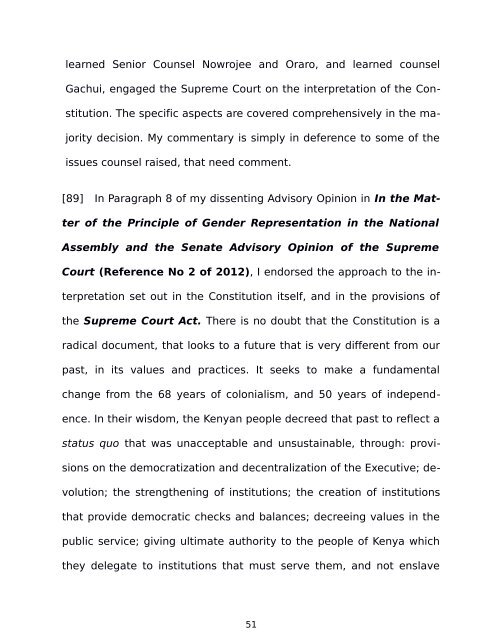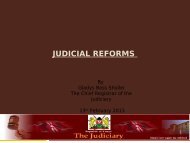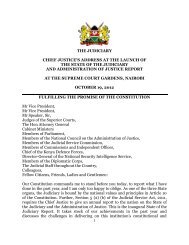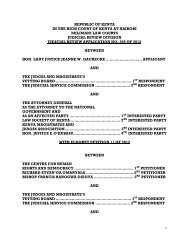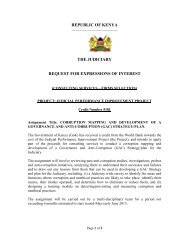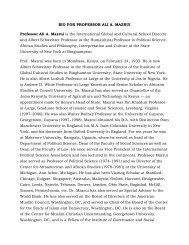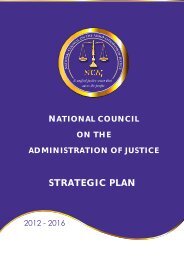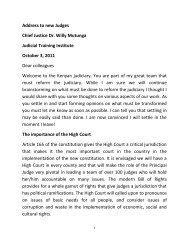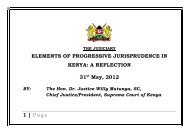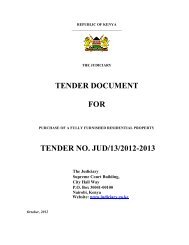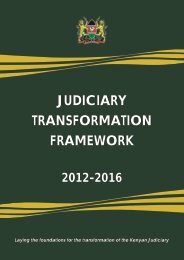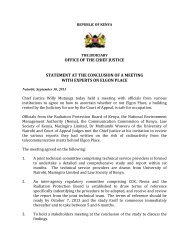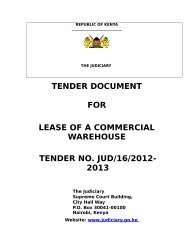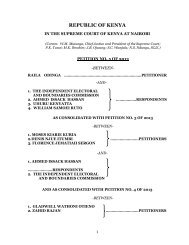REPUBLIC OF KENYA - The Judiciary
REPUBLIC OF KENYA - The Judiciary
REPUBLIC OF KENYA - The Judiciary
You also want an ePaper? Increase the reach of your titles
YUMPU automatically turns print PDFs into web optimized ePapers that Google loves.
learned Senior Counsel Nowrojee and Oraro, and learned counsel<br />
Gachui, engaged the Supreme Court on the interpretation of the Constitution.<br />
<strong>The</strong> specific aspects are covered comprehensively in the majority<br />
decision. My commentary is simply in deference to some of the<br />
issues counsel raised, that need comment.<br />
[89] In Paragraph 8 of my dissenting Advisory Opinion in In the Matter<br />
of the Principle of Gender Representation in the National<br />
Assembly and the Senate Advisory Opinion of the Supreme<br />
Court (Reference No 2 of 2012), I endorsed the approach to the interpretation<br />
set out in the Constitution itself, and in the provisions of<br />
the Supreme Court Act. <strong>The</strong>re is no doubt that the Constitution is a<br />
radical document, that looks to a future that is very different from our<br />
past, in its values and practices. It seeks to make a fundamental<br />
change from the 68 years of colonialism, and 50 years of independence.<br />
In their wisdom, the Kenyan people decreed that past to reflect a<br />
status quo that was unacceptable and unsustainable, through: provisions<br />
on the democratization and decentralization of the Executive; devolution;<br />
the strengthening of institutions; the creation of institutions<br />
that provide democratic checks and balances; decreeing values in the<br />
public service; giving ultimate authority to the people of Kenya which<br />
they delegate to institutions that must serve them, and not enslave<br />
51


